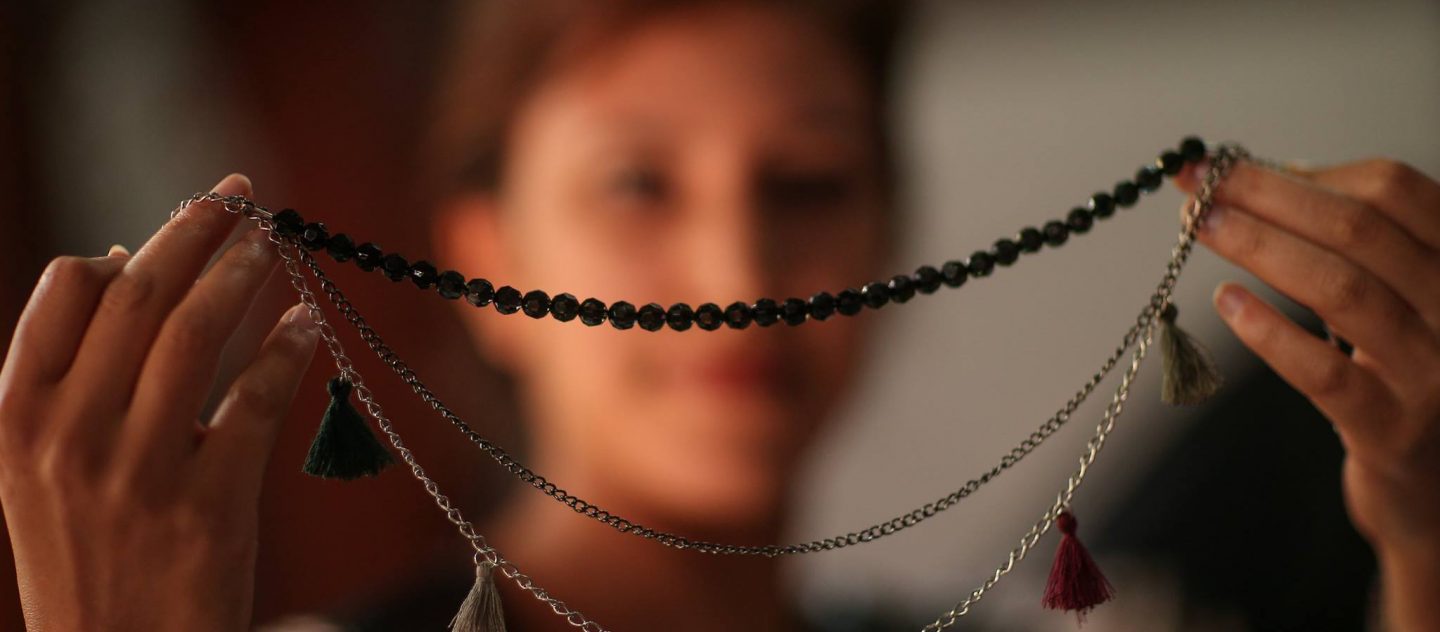After fleeing war or persecution, the opportunity to work and earn a living is one of the most effective ways people can rebuild their lives in dignity and peace.
We work to promote economic inclusion of those forced to flee their homes by advocating for their right to work and building their livelihoods through market-oriented programmes.
UNHCR helps refugees to achieve self-reliance by building their skills and knowledge, as well as providing access to the resources, training, assets, inputs, services and markets they need.
Our work in this area is guided by several core principles – including protection, diversity, equity, access and sustainability – outlined in UNHCR’s Global Strategy for Livelihoods (2019-2023).
We seek to ensure that all forcibly displaced people are able to make a safe and sustainable living that meets their basic needs, contributes to their dignity and provides for the full enjoyment of human rights.
Syrian nationals, refugees and stateless persons coming from Syria who are in need of international protection are under Temporary Protection in Turkey. The country has been providing a solid and comprehensive rights-based legal framework through the Temporary Protection Regulation, offering access to services including education, health care and labour market for Syrian refugees in the country. The Temporary Protection Regulation (dated 22 October 2014) regulates the right to work by beneficiaries of temporary protection. Founded on this legal basis, a Council of Ministers regulation determining the principles and procedures for issuance of work permits was published on 15 January 2016.
The Turkish government published a new regulation in mid-January 2016, whereby beneficiaries of Temporary Protection can apply for work permits 6 months after their registration. Subsequently, another regulation was published on 26 April 2016 extending this opportunity to all refugee populations. With the Syrian refugee crisis entering eighth year and the protracted nature of the crisis, economic inclusion of refugees and their access to the labour market is crucial for a dignified life. In this context, as UNHCR, we warmly welcome these steps, setting an example to other countries on how refugees should be received.
UNHCR Turkey operation focuses on four pillars and carries out various programmes in cooperation with a wide range of actors:
- Cooperation with the Republic of Turkey: The Republic of Turkey is the main partner of UNHCR Turkey. Joint programs are being implemented with Ministry of Family, Labor and Social Services of Turkey, Ministry of National Education, Turkish Labor Agency, Vocational Qualifications Authority for work permit facilitation and economic inclusion of refugees.
- Cooperation with the Private Sector: Private sector has a great responsibility and a major role in the economies of refugee hosting countries as well as any other country. UNHCR seeks the expertise of a wide range of actors in order to achieve its mandate and cooperation with the private sector carries great importance from various aspects in line with this vision.
- Vocational Training and Skills Building Programmes: UNHCR Turkey carries out many vocational, language training and skills building programs in line with market demand, industrial strategy and development plans of Turkey.
- Entrepreneurship Programmes: Refugee entrepreneurship is one of the areas where refugees can create added value for the host economies. This is also the case in Turkey with currently around 8,000 refugee owned businesses in the form of formally registered companies. UNHCR implements activities to foster and stimulate refugee entrepreneurship including access to finance.

